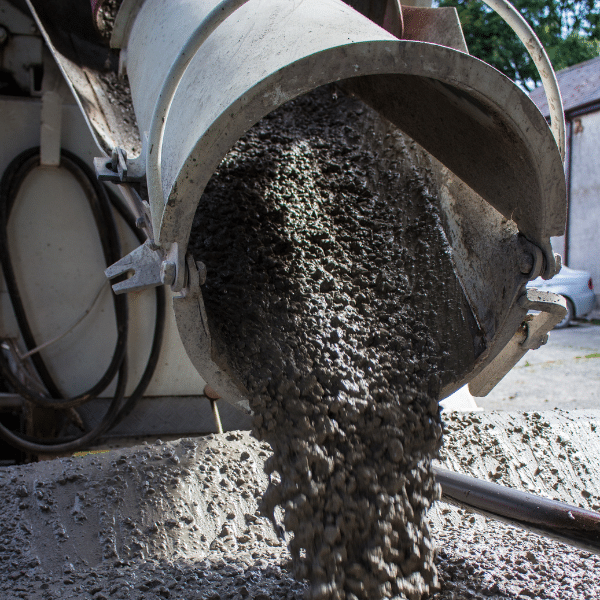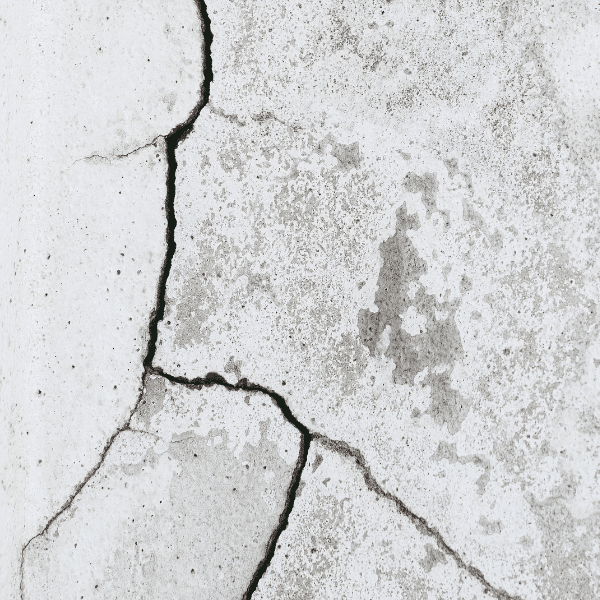Is Concrete Porous?

Is Concrete Porous and How Can That Impact Me?
To answer, yes, concrete is porous. In this article, we'll go over why concrete is porous and what that means for moisture in your basement.
What Does "Porous" Mean?
Porous can be used to describe a material that has tiny holes or voids which allow liquids to pass through. A porous material absorbs moisture due to these microscopic spaces, making it susceptible to water penetration. Understanding porosity is crucial when evaluating the durability and longevity of building materials like concrete.
Why is Concrete Considered Porous?
Concrete, made of stone, gravel, sand, cement, and water, is among the most utilized materials in construction. This mixture hardens to form a solid structure, but it remains highly porous despite its strength. Surprisingly, concrete has more pores than Swiss cheese, making it more absorbent than it is waterproof.

How Moisture Enters Concrete
Since concrete is not naturally waterproof, it contains millions of microscopic canals allowing water to seep. When moisture meets the surface, it moves through these tiny pores, eventually reaching the other side. This can be problematic in basements, where groundwater or humidity can lead to a moisture-rich environment.
The Consequences of Moisture in Concrete
Many issues can arise when concrete absorbs water:
- Increased Humidity: Moisture infiltration leads to a damp, musty-smelling basement.
- Structural Damage: Water breaks down concrete over time, causing cracks and leaks.
- Mold and Mildew Growth: Excess moisture creates an ideal environment for mold, which can affect air quality and human and pet health.

Preventing Moisture Problems in Your Basement
Now that you understand why concrete absorbs water, the next step is preventing basement moisture issues. The solution lies in a combination of due diligence and proactive action.
Do Your Due Diligence: Regular Inspections
To protect your basement from moisture damage, keep an eye on key areas:
- Walls and Floors: Look for cracks, leaks, discoloration, or damp spots.
- Crawl Spaces and Closets: Check for any musty odors or condensation.
- Foundation: Monitor for signs of leaks or water pooling around your home's exterior.
Take Action: Addressing Moisture Issues
If you notice signs of moisture, act quickly to mitigate damage to your basement, crawl space, and/or foundation. Some solutions include:
- Sealing Concrete: Apply waterproof wall coatings to minimize water absorption.
- Improving Drainage: Ensure gutters, downspouts, and landscaping direct water away from the foundation. In some cases, yard drains (French drains) are necessary to prevent water accumulation by your foundation.
- Using Dehumidifiers: Reduce indoor humidity to prevent condensation buildup and musty odors.
- Repairing Cracks Promptly: Small cracks can get larger over time, directly impacting moisture infiltration.

Contact Us
Using what you know about concrete’s porosity and susceptibility to moisture allows you to take the steps needed to prevent dampness and water issues. Through regular inspections and proactive solutions, you can protect your basement, crawl space, and foundation from water damage, ensuring a safe and dry living environment.
If you want to learn more about our services, please contact us. At Advanced Basement Solutions, we're pleased to provide free inspections and competitive, budget-friendly rates.

